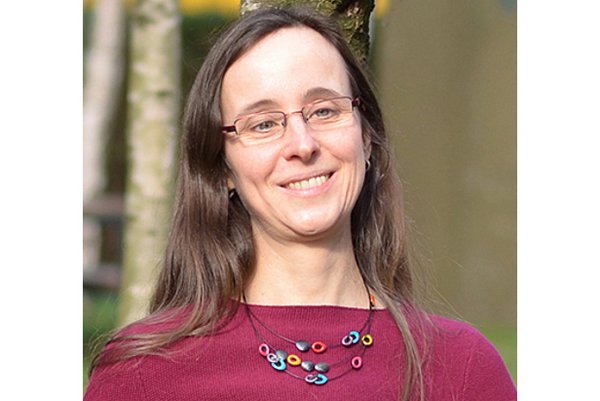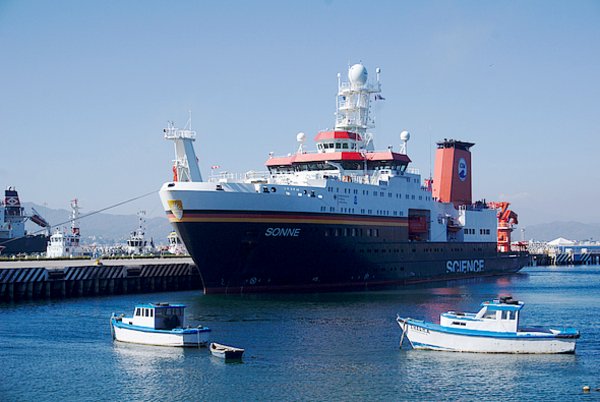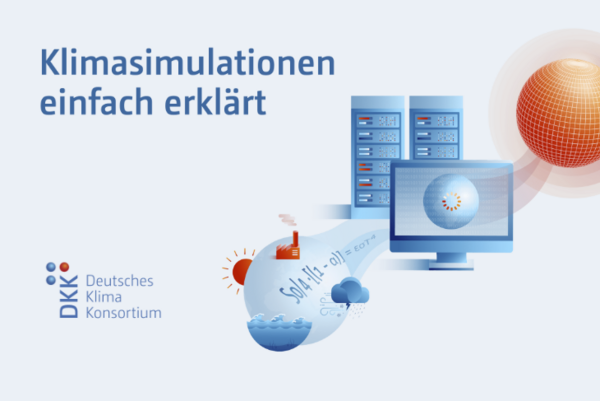![[Translate to English:] [Translate to English:]](/fileadmin/_processed_/e/4/csm_210721_Abb_PM_Brovkin_6b835aebdd.jpg)
Past abrupt changes provide evidence of cascading tipping points and ‘early warning signals’ in the Earth system
Can climate change result in a collapse in parts of the Earth system, what impacts would these events have on society, and can they be predicted? In…
![[Translate to English:] [Translate to English:]](/fileadmin/_processed_/a/c/csm_Wolkenphoto_George_964d626802.jpg)
The observed impact of mesoscale vertical motion on tropical clouds
A recent study by Geet George, Bjorn Stevens (both from the Max Planck Institute for Meteorology) and Marcus Klingebiel (now at Leipzig University)…
![[Translate to English:] [Translate to English:]](/fileadmin/_processed_/b/3/csm_210713_Wolkenphoto_Karibik_AK_74872da07c.jpg)
Waves and coherent flows in the tropical atmosphere: new opportunities, old challenges
In a review article appearing in the Quarterly Journal of the Royal Meteorological Society, Dr. Claudia Stephan (Max Planck Institute for…
![[Translate to English:] [Translate to English:]](/fileadmin/_processed_/5/f/csm_scicom3_ba11bd2757.png)
Exploiting large ensembles for a better yet simpler climate model evaluation
In a new study, Dr. Laura Suarez, Dr. Sebastian Milinski and Dr. Nicola Maher evaluate which models best capture the real-world climate with its…

Cathy Hohenegger successfully habilitated at Universität Hamburg
Dr. Cathy Hohenegger, scientist and leader of the group “Precipitating Convection” at the Max Planck Institute for Meteorology (MPI-M), was awarded…

Julia Windmiller co-leads the atmospheric measurements on board RV SONNE
On 27 June 2021, after a 10-day quarantine of the participants, the RV SONNE will set off from Emden under the cruise guidance of Prof. Peter Brandt…

How climate modelling works — Johann Jungclaus involved in establishing new website on climate simulations
Climate neutrality by 2045 is Germany´s goal, and debates on how to get there are in full swing. To achieve it, profound changes are needed. Climate…
![[Translate to English:] [Translate to English:]](/fileadmin/_processed_/6/a/csm_Dian_fig1a._6x4_3336238816.png)
Abrupt CO2 quadrupling: Resolving ocean eddies leads to smaller increase in global mean surface temperature
In a recent study in Geophysical Research Letters, Dr. Dian Putrasahan and colleagues from the department “The Ocean in the Earth System” at the Max…
![[Translate to English:] [Translate to English:]](/fileadmin/_processed_/f/4/csm_stephan_claudia_aktuelles_6x4_f6da8bd463.jpg)
Claudia Stephan has been accepted into the Elisabeth Schiemann Kolleg
Dr. Claudia Stephan, Minerva Fast Track group leader in the department “The Atmosphere in the Earth System” at the Max Planck Institute for…
![[Translate to English:] [Translate to English:]](/fileadmin/_processed_/6/0/csm_Eddies_AMOC_STORM_6x4_ebaddfec9a.png)
Only eddy-resolving models capture the complete range of AMOC responses to surface winds
In a new paper, Veit Lüschow, Jin-Song von Storch and Jochem Marotzke from the Max Planck Institute for Meteorology show that the Atlantic meridional…
![[Translate to English:] [Translate to English:]](/fileadmin/_processed_/3/2/csm_210609_Fig_1_Azoulay_et_al_077a0c7aa4.png)
The Arctic polar vortex response to volcanic forcing of different strengths
Large volcanic eruptions can inject sulfur containing gases into the stratosphere where they build sulfate aerosols. These particles, on the one…
![[Translate to English:] [Translate to English:]](/fileadmin/_processed_/4/5/csm_210608_CLICCS_Mobil_640x400px_11c992aceb.jpg)
Climate Protection: Deep Decarbonization by 2050 Currently Not Plausible
Today the Hamburg-based Cluster of Excellence “Climate, Climatic Change, and Society” (CLICCS) publishes a new, essential study on climate futures.…
